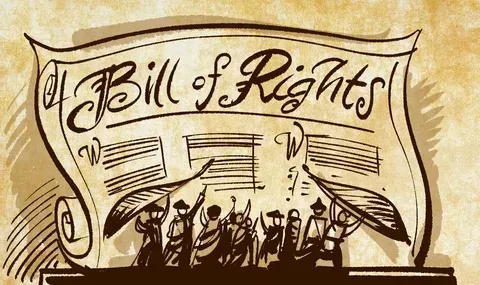Turkey Day Tips

It’s common knowledge that the likelihood of sustaining a personal injury is significantly higher during the Holiday Season. From late November to mid-January, holiday-related injuries abound. Put simply, we’re human: prone to error, endlessly distracted, and always in a hurry. These accident-causing factors are all the more palpable during the holidays, as families rush to get the last-minute Thanksgiving preparations ready in anticipation of a bountiful feast with family and friends.
Whenever large numbers of people get together, accidents are bound to happen, and Thanksgiving is no exception. Here, we’ll examine two of the most common Thanksgiving-related injury causing events and discuss some basic precautions you can take to help ensure a safe Turkey Day for you, your family, and your friends.
Thanksgiving Travel-Related Accidents
According to statistics provided by Nationwide Insurance, roughly 46.9 million Americans traveled more than 50 miles on Thanksgiving in 2015. Of these 46.9 million Americans, 36.1 million were estimated to have flown to spend the holiday with loved ones in another state, and 41.9 million were estimated to have driven at some point during their Thanksgiving travels.
Being on the road with other drivers can be dangerous at any time of the year, but with the mad-dash of these drivers trying to get to their loved one’s homes in time for Thanksgiving dinner, the heavy volume of traffic associated with the holiday presents a unique danger for travelers.
In fact, the National Safety Council (“NSC”) estimates that 485 people may die as a result of Thanksgiving-related motor vehicle accidents. Even despite the COVID-19 pandemic, which has significantly stunted holiday travel this year, that number is still up from the 463 deaths the NSC reported from Thanksgiving in 2017. Further, the NSC reveals that alcohol impairment was involved in about one-third of these fatal accidents.
At Lento Law Group, we do not want you or your loved ones to become part of this troubling statistic. Therefore, in order to mitigate your risk of being involved in a motor vehicle accident this Thanksgiving, here are some tips to help ensure safe travels this Turkey Day:
- Prepare your car for the cold winter season – check the tread on your tires and make sure they are properly inflated, consider snow tires if you will be traveling in an area prone to heavy snowfall, check your oil and antifreeze levels, fix your heater if necessary, and inspect that your battery is adequately charged.
- Get a good night’s sleep the night before traveling to avoid driving drowsy.
- Plan ahead, and, if possible, travel when there is less traffic, keeping in mind that peak driving hours on Thanksgiving are generally between 3:00 – 6:00PM.
- Make sure every person in the vehicle has their seatbelt fastened, no matter how long or short the distance traveled.
- PUT THE CELL PHONE DOWN! Do not text-and-drive!
- As always, practice defensive driving.
- Be a responsible host and discuss with your guests that they designate a sober driver to ensure they make it home safely when the night is through.
While these tips can help lessen your chances of falling victim to a Thanksgiving-related motor vehicle accident, they aren’t foolproof, therefore, Lento Law Group encourages you to always use caution when on the roadway.
Winter Weather Slip & Falls
Motor vehicle accidents are not the only cause of Thanksgiving-related injuries. In the winter, ice can wreak havoc on the safety guests coming in or out of our homes, as slippery walkways and driveways can pose significant hazards. Seniors should take particular care and attention as they are particularly susceptible to serious injuries caused by slip and falls, for instance, hip or skull fractures.
But just who is responsible for ensuring that these walkways and driveways are not slick with ice?
While business owners have a general duty to ensure that the sidewalks and driveways of their business are not icy – and are therefore not posing a danger to their customers – they must also take affirmative steps – such as performing reasonable, period inspections – to detect such hazardous conditions on their premises, and upon finding such a hazard, they must further take prompt action to mediate these hazardous conditions.
Though not quite as onerous a burden as the one imposed on business owners with respect to their customers, the law does nonetheless impose a duty on private homeowners to take reasonable steps to keep their premises safe for visitors, which can include the removal of snow and ice that may have accumulated.
But such slip & falls are not limited to outdoors.
Imagine: Your family is coming over for Thanksgiving. Uncle Bob just trudged through the snow on your front walkway, white powder clinging to his boots. He steps inside your home, kicks off his boots, and now the snow from his soles has become a puddle on slick tile/linoleum/hardwood floor. Now comes Great-Aunt Mildred, headed straight for the puddle!
The bottom line: Just as with the outside of their property, homeowners have a duty to take reasonable steps to ensure the safety of their guests, such as removing or repairing known hazards in a timely manner, and warning guests of known dangers.
Been Injured this Thanksgiving?
Even exercising the greatest degree of care, no one can prevent all accidents from occurring, especially on Thanksgiving. Sometimes, no matter how careful we are, we still may find ourselves getting injured. At Lento Law Group, we are committed to helping those who have sustained injuries as a result of a motor vehicle accident or a slip and fall event. If you or a loved one were injured through someone else’s carelessness this Thanksgiving, reach out to the Lento Law Group today!
More News & Resources











